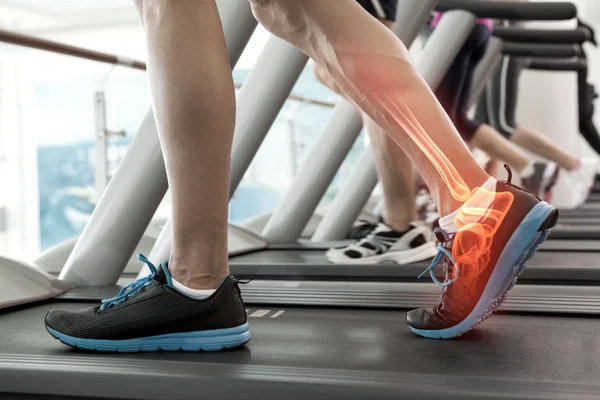Share this @internewscast.com
Study Reveals the beneficial effects of vitamin K on bone health – Vitamin K (VK) is a fat-soluble vitamin that plays a crucial role in various bodily functions, including blood clotting, bone health, and cardiovascular health. Beyond its role in blood coagulation, VK has emerged as an essential nutrient for maintaining bone strength and integrity. Recent research has shed light on the mechanisms by which VK exerts its beneficial effects on bone metabolism.
VK’s impact on bone health is primarily attributed to its involvement in the activation of proteins crucial for bone formation and mineralization. Osteocalcin, a non-collagen protein, is one of the key proteins that VK activates. Activated osteocalcin enhances bone mineralization by increasing the binding of calcium ions to hydroxyapatite crystals, the primary mineral component of bone.

Apart from osteocalcin, VK also activates matrix Gla protein (MGP), another important protein involved in bone metabolism. MGP regulates bone mineralization by preventing inappropriate soft tissue calcification. Deficiencies in VK can lead to undercarboxylated forms of osteocalcin and MGP, impairing their functions and potentially increasing the risk of bone fractures.
VK supplementation has been shown to improve bone health parameters in both animal and human studies. In postmenopausal women, MK-7 supplementation has been demonstrated to increase bone mineral density (BMD), a measure of bone strength. Additionally, VK2 supplementation has been associated with a reduced risk of hip fractures in individuals with osteoporosis.
Current dietary recommendations for VK intake vary among different guidelines. The National Academy of Medicine in the United States recommends a daily intake of 120 micrograms (mcg) for adult men and 90 mcg for adult women. However, some studies suggest that actual VK requirements for optimal bone health may be higher than these recommended levels.
Leafy green vegetables, such as kale, spinach, and broccoli, are excellent sources of vitamin K1 (VK1), the most common form of VK. Natto, a fermented soybean product, is a rich source of both VK1 and vitamin K2 (VK2), another form of VK that has been linked to bone health benefits. Meats like liver and pork also provide significant amounts of VK.
The recent review published in the journal Nutrients delves into the effects of VK on bone health, highlighting its beneficial effects and underlying mechanisms. Here’s a summary of the key findings:
Beneficial Effects of Vitamin K on Bone Health:
-
Improved Bone Mineral Density (BMD): VK supplementation has been shown to increase BMD, a measure of bone strength, in postmenopausal women.
-
Reduced Risk of Hip Fractures: VK2 supplementation has been associated with a decreased risk of hip fractures in individuals with osteoporosis.
-
Enhanced Osteocalcin Activation: VK plays a critical role in activating osteocalcin, a protein that promotes bone mineralization.
-
Reduced Osteoclast Activity: VK can antagonize osteoclasts, cells responsible for bone resorption, helping to maintain bone balance.
Underlying Mechanisms of VK’s Effects on Bone:
-
Direct Activation of Vitamin K-Dependent Proteins (VKDPs): VK directly activates VKDPs like osteocalcin and MGP, promoting bone formation and preventing inappropriate calcification.
-
Regulation of Transcription Factors and Proteins: VK can modulate the expression of various transcription factors and proteins involved in bone metabolism, promoting osteoblastogenesis and inhibiting osteoclastogenesis.
-
Signaling Pathways: VK influences bone health through various signaling pathways, including the Wnt/-catenin, steroid and xenobiotic receptor (SXR), and protein kinase A (PKA) pathways.
While existing research has established the potential of VK supplementation for improving bone health, further investigations are warranted to refine dosage recommendations and assess long-term effects. Nevertheless, the available evidence positions VK as a promising nutrient for promoting bone health and preventing age-related bone loss.
Conclusion:
The review underscores the importance of VK for bone health and its potential as a therapeutic agent for bone-related disorders. Further research is warranted to optimize VK supplementation strategies and elucidate its synergistic effects with other anti-osteoporosis medications.










